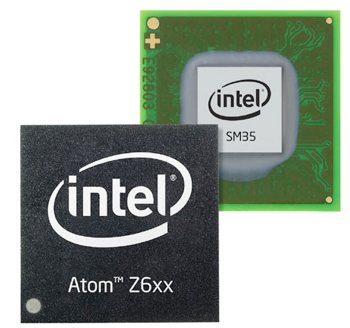Intel has shipped over 100 million Atom processors to date. The company emphasized that the growth of the Atom and the netbook have gone hand in hand, but that was just the beginning.
The chip giant is today celebrating the third birthday of its low-power processor and promising to keep it going for many years to come, via a category it is calling companion devices (netbooks, smartphones, and tablets of all sizes and varieties). At Computex Taipei 2011 today, Intel showed more than 10 tablets that can boot into MeeGo, Android, and Windows. The company wanted to underline that regardless of what OS its partners choose, Atom is the way to go.
Intel also said it is accelerating the Atom processor roadmap to a one-process-generation per year cadence. Intel Executive Vice President Sean Maloney said the Atom processor will outpace Moore's Law, accelerating from 32nm through 22nm to 14nm within three successive years. Having a cadence of a new-process-generation every year will result in significant reduction in transistor leakage, lower active power, and an increase of transistor density to enable more powerful devices with more features and longer battery life.
"The work Intel is doing with the Intel Atom processor roadmap, coupled with the significant changes we are making to our Intel Core processor roadmaps, will continue to enhance Intel's ability to deliver complete hardware solutions with a choice of software platforms across a full spectrum of computing – from back-end servers that power the cloud to the billions of devices that access the cloud," Maloney said in a statement. He noted the Intel Atom processor Z670 platform (part of Oak Trail) already has more than 35 design wins since its launch in April, with several convertibles, sliders and other innovative designs on shelves now and more coming through the rest of the year.
Intel is preparing its first netbook platform based on 32nm technology (Windows, Chrome OS, and MeeGo), codenamed Cedar Trail, which will enable ultra-thin, fanless designs with new capabilities such as Intel Rapid Start technology and Smart Connect Technology. In addition, the new platform is expected to enable more than 10 hours of battery life and weeks of standby.
Intel's first purpose-built 32nm platform (Android and MeeGo) for smartphones and tablets, codenamed Medfield, has been optimized for both low power and high performance and will deliver long use-time, rich media and gaming, and advanced imaging capabilities. In production later this year, the platform will enable sub-9mm designs that weigh less than 1.5 pounds for tablet designs in market the first half of 2012.
